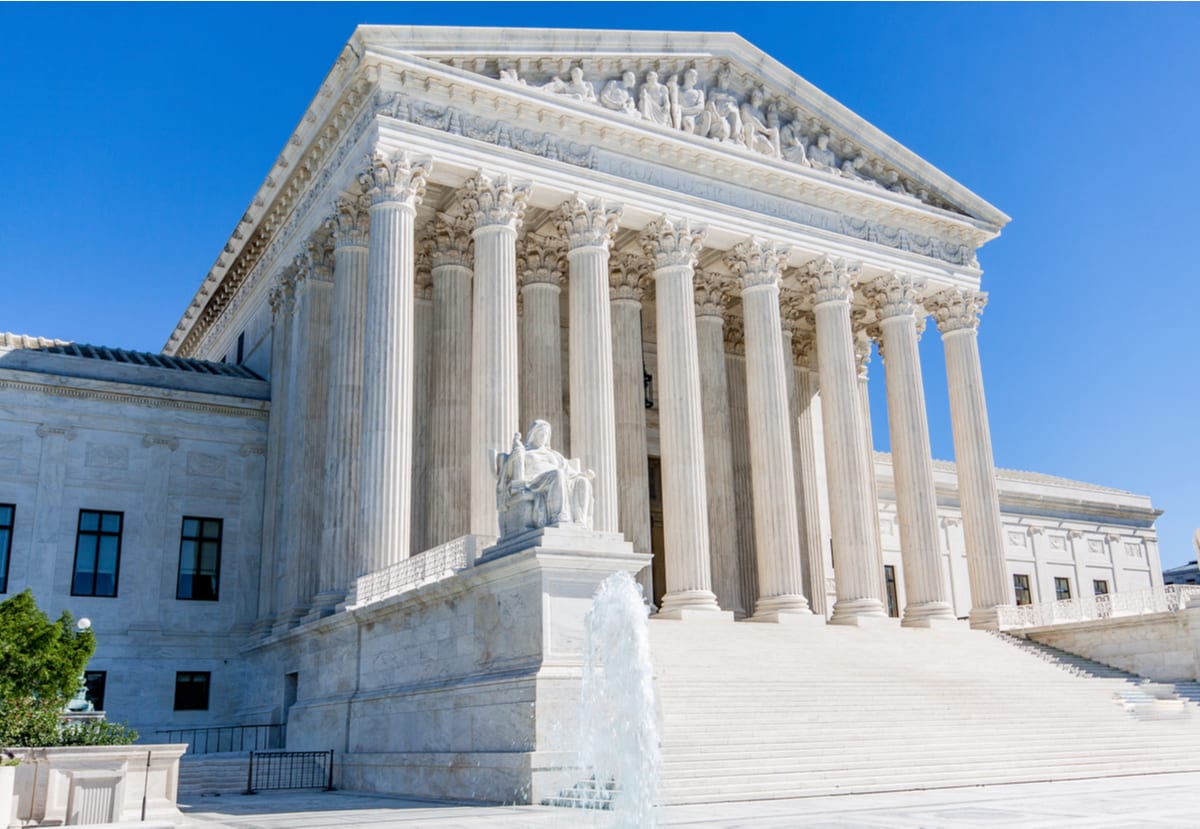New Supreme Court Ruling Makes Pulling You Over Easier for Police

It has long been too easy for police officers to stop drivers on the highway, even without sufficient reason to believe a violation occurred. The U.S. Supreme Court’s recent ruling has made these traffic stops now even more accessible for law enforcement.
On April 6, an 8 to 1 Senate majority ruled that a police officer in Kansas acted within his legal rights when he stopped a car owned by a person with a suspended driver’s license. The officer did not witness unlawful activity by the driver but only ran the license plate through a computer check that revealed the owner of the car’s license was revoked.
The Justices debated whether the computer check that confirmed the car owner’s revoked license was “reasonable” under the U.S. Constitution to stop the driver, even if the officer didn’t know the person driving was the owner. Even though the driver could have been a friend, spouse, child, or neighbor of the owner, the Supreme Court decision ruled police officers are allowed to stop vehicles when the owner’s license is suspended.
Background on Kansas v. Glover Supreme Court Case
The ruling arises from an incident in 2016 when Kansas Deputy Mark Mehrer stopped and wrote a ticket to Charles Glover Jr., although he hadn’t observed a traffic violation. Glover’s lawyers argued the deputy lacked “reasonable suspicion” that Glover had committed a crime and, as a result, violated his Fourth Amendment right that protects from unreasonable searches and seizures.
The case, Kansas v. Glover, first ruled in Glover’s favor but was appealed to the highest court in the land. The U.S. Supreme Court disagreed with Glover’s lawyers with Justice Clarence Thomas writing for the majority,
“We hold that when the officer lacks information negating an inference that the owner is the driver of the vehicle, the stop is reasonable…The fact that the registered owner of a vehicle is not always the driver of the vehicle does not negate the reasonableness of the inference that an individual with a revoked license will continue to drive.”
In short, this ruling implies that police may stop a vehicle when they know only that its owner’s license is revoked – even if they can’t tell who’s driving.
What Does This Supreme Court Ruling Mean for Drivers in Baltimore?
The precedent for when police officers can lawfully pull a driver over without infringing Fourth Amendment rights is, they must have reasonable suspicion. This Supreme Court ruling sets a new precedent for police officers to stop a vehicle when they’re notified that the owner’s license is suspended. Law enforcement must continue to establish reasonable suspicion of whether the owner is driving a car. But if they can’t visibly see that the driver is not the owner, the suspended license reading is sufficient reasoning to stop the driver.
Drivers Might Not Know When Their License is Suspended
Many times, drivers in Baltimore get their licenses suspended without their knowledge. Reasons a driver’s license suspension in Maryland include:
● Missing a court date
● Unpaid traffic tickets
● Point accumulation
● Unpaid child support
What this ruling means for Maryland drivers is that they could be pulled over by police when they least expect it. If you’re driving a friend’s car, it’s essential to learn whether that friend’s license is valid. If it’s suspended for any reason, you could be pulled over while driving that car.
Possible Invasion of Privacy Rights
Being stopped by police is always inconvenient when you’re trying to get somewhere. Some worry that this new precedent will make traffic stops more than just uncomfortable, but also an intrusion of privacy. For example, if a police officer performed an investigative stop, he or she could seize illegal substances in the car if they are in plain view. A traffic offense then becomes a much more serious crime.
Have You Been Unlawfully Stopped by Traffic Police in Baltimore? Contact Attorney Hillel Traub
If you’ve been stopped unlawfully by police in Baltimore, contact Attorney Hillel Traub of The Law Office of Hillel Traub for help. Hillel Traub has vast experience in fighting civil and criminal traffic charges and working with the Maryland MVA to defend his clients’ rights and drivers’ licenses.
As a former Assistant Attorney General for the MVA, attorney Hillel Traub now uses his insider knowledge and experience to work for Baltimore and surrounding cities’ citizens, providing skillful and personal legal counsel for clients. To speak with Hillel about your traffic matter, call (410) 580-1100 for a free consultation or complete our contact form.